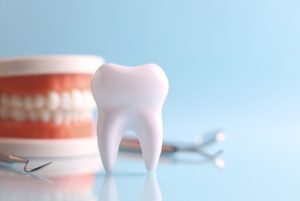Many people are excited to show off their brighter smiles after completing a whitening treatment. However, questions about what foods and drinks are safe soon follow. One of the most common concerns is whether drinking coffee will undo the results. Understanding when it is safe to enjoy your favourite cup of coffee after whitening procedures can help protect your new smile. This guide provides practical advice and clear answers to help you maintain your whitening results without giving up your daily routine.
Why Timing Matters After Teeth Whitening Treatment
The first few days after a whitening treatment are critical for maintaining results. Your teeth are temporarily more vulnerable during this period, requiring extra care. Here, we explore why teeth need time to stabilise before reintroducing staining foods and drinks. Knowing this information empowers you to make decisions that protect your investment in a brighter smile.
Increased Porosity of Tooth Enamel Post-Treatment
After a professional whitening treatment, tooth enamel becomes more porous for a short time. This increased porosity makes it easier for pigments to enter and create stains. During this window, teeth are more likely to absorb dark pigments from beverages like coffee.
It takes about 48 hours for the enamel to begin resealing after whitening. Avoiding coffee during this period helps reduce the chance of dental stains setting in. Once the enamel recovers, it becomes more resistant to staining agents found in drinks and food.
 Direct Contact Between Coffee and Newly Whitened Teeth
Direct Contact Between Coffee and Newly Whitened Teeth
When drinking coffee too soon, direct contact with the tooth surface can allow staining compounds to bind quickly. The chemical compounds in black coffee are particularly strong at attaching to enamel pores.
Sipping slowly or holding coffee in the mouth increases exposure time, worsening the staining effect. Using a straw may help reduce direct contact, but complete avoidance during the first two days remains the safest approach. Waiting ensures the enamel’s protective barrier reforms before facing staining agents.
Why Professional Whitening Requires Special Precautions
Patients who undergo professional teeth whitening receive a stronger formulation than over-the-counter products. This professional whitening treatment creates a more significant change in enamel porosity, requiring more attention afterwards. A dentist may advise patients to follow a stricter “white diet” during recovery to maintain whitening results. This temporary diet reduces exposure to staining foods and drinks while the enamel stabilises. Following guidelines from professional teeth care helps maximise whitening effects.
Foods and Drinks to Avoid After Whitening Treatment
Certain foods and beverages can stain teeth, especially during the early post-treatment phase. Avoiding these items can help extend your whitening results and protect dental health. Knowing which foods and drinks to avoid helps you make smarter choices to steer clear of staining agents when it matters most.
Dark Beverages That Can Stain Teeth
Coffee, black tea, red wine, and green tea are among the leading drinks that stain teeth. These beverages contain dark pigments that bind to enamel, even more so on freshly whitened teeth. Consuming coffee or other drinks with similar staining potential within 48 hours may undo whitening effects.
Other drinks like clear soft drinks might seem harmless but often contain acidic ingredients that erode tooth enamel. Weaker enamel is more susceptible to stains from later food and drink exposure. Drinking water afterward may help dilute staining agents, but it is not enough to fully prevent staining.
Brightly Coloured and Dark Sauces to Watch For
Certain sauces contain dark pigments or vibrant colours that can stain teeth. Tomato sauce, soy sauce, curry powder, balsamic vinegar dressing, and red vinaigrette all fall into this category. These sauces leave residues that cling to enamel and create surface stains. Adding white cheese or white bread to meals can help reduce the staining effect of these sauces by balancing pigment exposure. Waiting until after the recovery window before eating brightly coloured sauces can prevent unintended discolouration.
 Dark Fruits and Foods With Intense Pigments
Dark Fruits and Foods With Intense Pigments
Some fruits contain dark pigments that increase staining risks. Dark fruits like blackberries and blueberries can stain newly whitened teeth if eaten too soon. Black beans and sweet potatoes also carry natural pigments that may bind to enamel. Including fruits like bananas or peeled apples offers a safer alternative during the first few days after whitening procedures. Limiting dark fruits ensures the whitening effects last longer without dulling the bright smile.
Highly Acidic Foods That Affect Enamel
Citrus fruits and other highly acidic foods can weaken enamel if consumed too soon after whitening. Acid exposure softens the enamel surface, allowing stains from other foods to penetrate more easily.
Combining acidic foods with dark sauces or beverages elevates the risk of enamel erosion and staining. Choosing low-acid options supports enamel recovery and protects whitening results. Eating foods that are less acidic preserves tooth strength during this sensitive time.
Other Staining Foods to Consider Avoiding
In addition to well-known culprits, foods like beetroot, pomegranate, and certain spices contribute to tooth staining. Avoiding these items for the first 48 hours reduces the chance of unwanted discolouration. Incorporating a “white diet” focused on pale, low-pigment foods helps avoid staining while supporting oral health.
Tips for Safely Enjoying Coffee After Teeth Whitening
While avoiding coffee temporarily protects whitening results, many people look forward to enjoying their favourite beverage again. Knowing when and how to reintroduce coffee can help minimise staining while satisfying cravings.
The following strategies offer practical ways to drink coffee without compromising your whitening investment. Each approach helps balance enjoyment with long-term dental care.
The Recommended Waiting Period Before Drinking Coffee
Most dental professionals recommend waiting at least 48 hours before consuming coffee after teeth whitening. This timeframe allows the enamel’s porous surface to start closing, reducing stain absorption. In some cases, a dentist may advise extending this waiting period if additional whitening sessions are planned. Following personalised recommendations ensures the safest outcome for your specific whitening treatment.
Why Using a Straw Can Reduce Coffee Staining
Drinking coffee through a straw minimises contact between the beverage and teeth. This method directs the liquid past the front teeth, lowering the chance of staining. Cold coffee or iced versions work better with a straw since hot drinks can soften plastic. Using a straw consistently after the waiting period can help preserve whitening results over time.
Rinsing With Water After Drinking Coffee
Drinking water afterwards helps rinse away leftover pigments that may cling to teeth after coffee consumption. Swishing water gently can dilute staining compounds before they settle into the enamel.
Although rinsing does not fully remove stains, it provides a simple step to reduce pigment exposure. Making water a regular habit after coffee supports good oral hygiene habits and protects tooth colour.
Brushing Timing Matters After Coffee
Brushing teeth immediately after drinking coffee may seem helpful, but can actually harm enamel softened by acid exposure. Waiting at least 30 minutes before brushing allows the enamel to reharden. Using a soft-bristled toothbrush with fluoride toothpaste protects enamel while maintaining whitening results. This gentle care approach supports both dental health and cosmetic outcomes.
Scheduling Regular Dental Cleanings for Maintenance
Regular dental cleanings help remove stains and plaque that build up between whitening treatments. Professional teeth cleaning complements at-home care by reaching areas that brushing may miss. Attending cleanings every six months supports overall oral health while extending whitening results. Discussing whitening maintenance with a dentist allows tailored care for your unique smile goals.
Protecting Your Smile Beyond Coffee Concerns

Maintaining good oral hygiene habits, being mindful of staining foods, and following professional advice all contribute to a longer-lasting result. By taking small steps each day, you can enjoy a whiter smile while still including your favourite foods and beverages in your lifestyle.
If you have questions about how to avoid staining or need guidance on caring for your smile after whitening, we invite you to visit our clinic. Our team is here to provide expert advice and personalised care to support your dental health journey. Call us today on (02) 6188 7103 to schedule your appointment and keep your smile shining confidently.
References
https://www.sciencedirect.com/science/article/pii/S2772559622000207
https://www.hopkinsmedicine.org/health/treatment-tests-and-therapies/teeth-whitening


 Direct Contact Between Coffee and Newly Whitened Teeth
Direct Contact Between Coffee and Newly Whitened Teeth Dark Fruits and Foods With Intense Pigments
Dark Fruits and Foods With Intense Pigments




